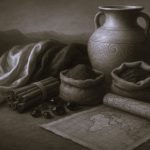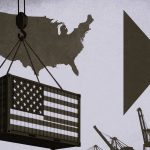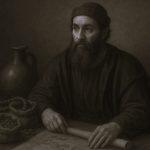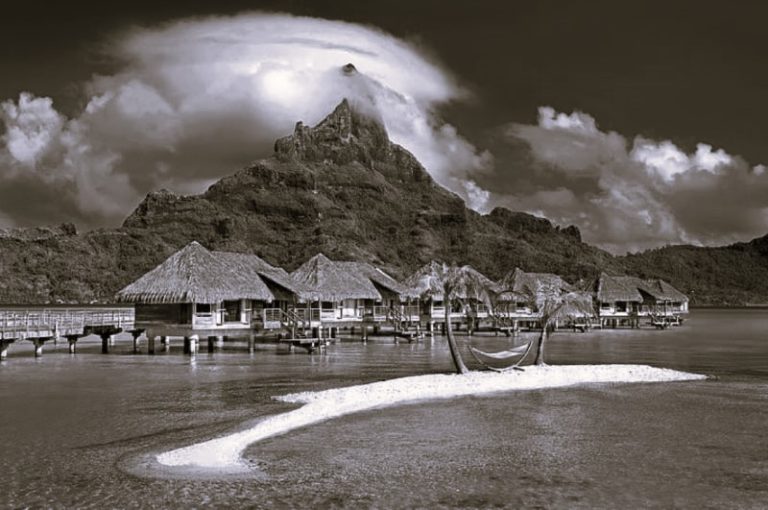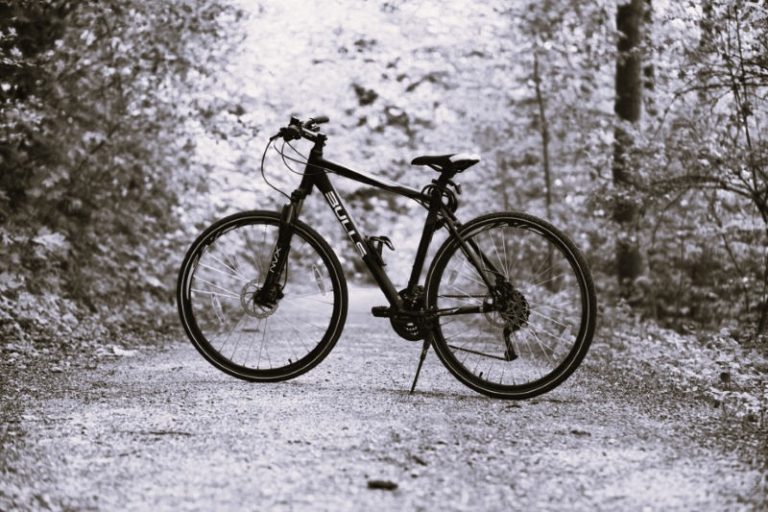
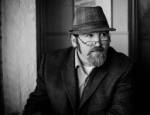
Curated/Reviewed by Matthew A. McIntosh
Public Historian
Brewminate
A revolutionary (Trotsky), a psychoanalyst (Freud), several writers and poets (including Polgar, Zweig and Altenberg) and an architect (Loos) walked into a café. What sounds like the start of a joke was an everyday occurrence at Café Central (est. 1876). Over coffee, cake and the odd cigar, some of the greatest poets, philosophers and – it has to be said – storytellers the world has ever seen, got together in Vienna’s most attractive coffeehouse.
Café Central is a traditional Viennese café located at Herrengasse 14 in the Innere Stadt first district of Vienna, Austria. The café occupies the ground floor of the former Bank and Stockmarket Building, today called the Palais Ferstel after its architect Heinrich von Ferstel.[1]

The menu includes a broad selection of classic Viennese dishes, traditional coffee specialities and sweet treats from the in-house patisserie. Soak up the historic surroundings as you sample Café Central’s mouth-watering choice of culinary creations. With its unique Mediterranean flair, the Arkadenhof is the perfect setting for formal and informal functions – not to mention press conferences or private meetings away from prying eyes. Just like Altenberg enjoyed it. Who incidentally walked out without paying.
Café Central is operated by Palais Events and located inside Palais Ferstel, a palatial mansion house inspired by Venetian Trecento-era architecture. Suitable for various kinds of events, its rooms are bound to leave an unforgettable impression on your guests.
The café was opened in 1876, and in the late 19th century it became a key meeting place of the Viennese intellectual scene. Key regulars included: Peter Altenberg, Theodor Herzl, Alfred Adler,[2] Egon Friedell, Hugo von Hofmannsthal, Anton Kuh, Adolf Loos, Leo Perutz, Robert Musil, Stefan Zweig, Alfred Polgar, Adolf Hitler, and Leon Trotsky. In January 1913 alone, Josip Broz Tito, Sigmund Freud, and Trotsky (the latter being regular) were patrons of the establishment. Tarot games of the Tarock family were played regularly here and Tapp Tarock was especially popular between the wars.[3]
The café was often referred to as the “Chess school” (Die Schachhochschule) because of the presence of many chess players who used the first floor for their games.[4]

Members of the Vienna Circle of logical positivists held many meetings at the café[5] before and after World War I.
A well known story is that when Victor Adler objected to Count Berchtold, foreign minister of Austria-Hungary, that war would provoke revolution in Russia, even if not in the Habsburg monarchy, he replied: “And who will lead this revolution? Perhaps Mr. Bronstein (Leon Trotsky) sitting over there at the Cafe Central?”[6]
The café closed at the end of World War II. In 1975, the Palais Ferstel was renovated and the Central was newly opened, however in a different part of the building. In 1986, it was fully renovated once again.
Today it is both a tourist spot and a popular café marked by its place in literary history.
Endnotes
- Marboe, Ernst Wolfgang (1989). Café Central. Vienna: Verlag Müller.
- Hoffman, Edward (1994). The Drive for Self: Alfred Adler and the founding of Individual Psychology. Reading, MA: Addison Wesley, pp. 52, 77, 85-86, 101
- Café Central Vienna – website. Retrieved 1 Oct 2020.
- Skjoldager, Per; Nielsen, Jørn Erik (2012). Aron Nimzowitsch: On the Road to Chess Mastery, 1886-1924. McFarland. p. 29.
- Stadler, Friedrich (2015). The Vienna Circle: Studies in the Origins, Development, and Influence of Logical Empiricism. Springer. p. 370.
- A. J. P. Taylor, in The Struggle for Mastery in Europe 1848-1918 (1980)
Some text taken from Cafe Central‘s web site. Other text originally published by Wikipedia, 10.20.2005, under a Creative Commons Attribution-ShareAlike 3.0 Unported license.

